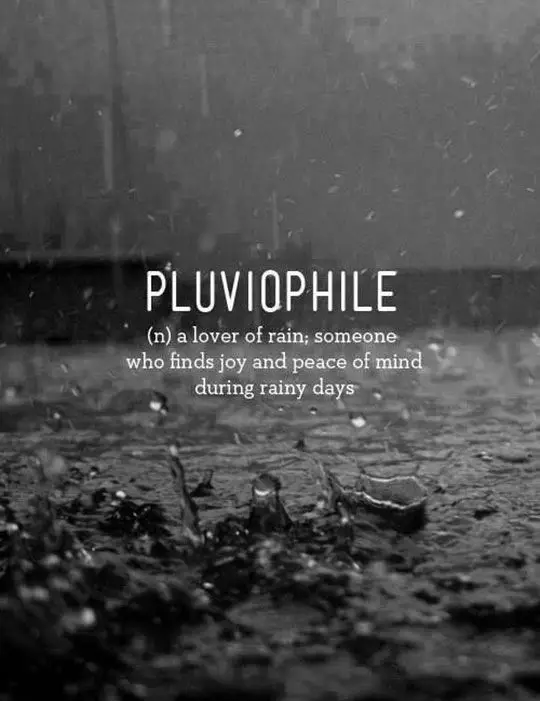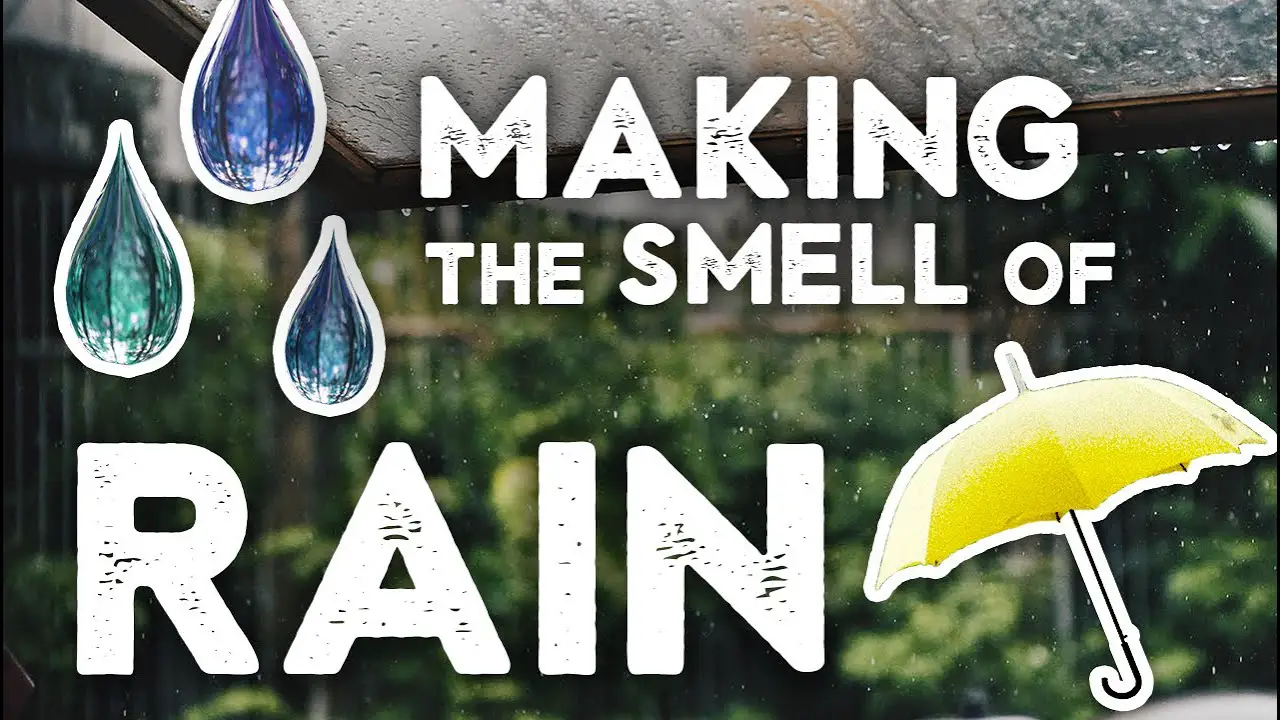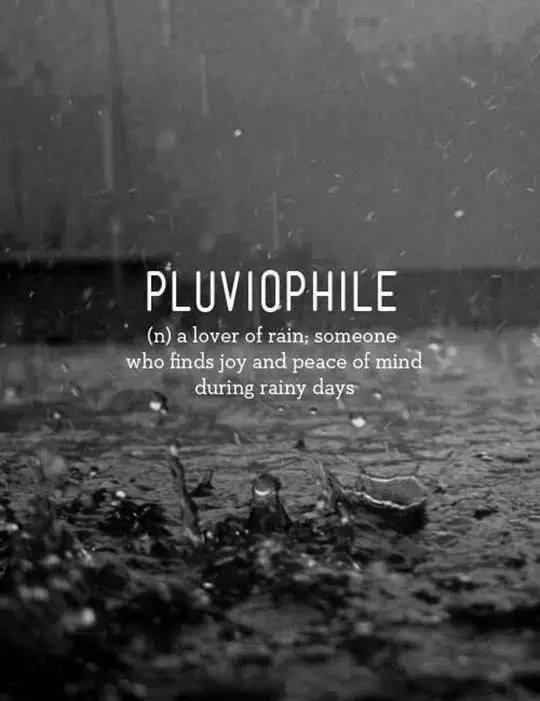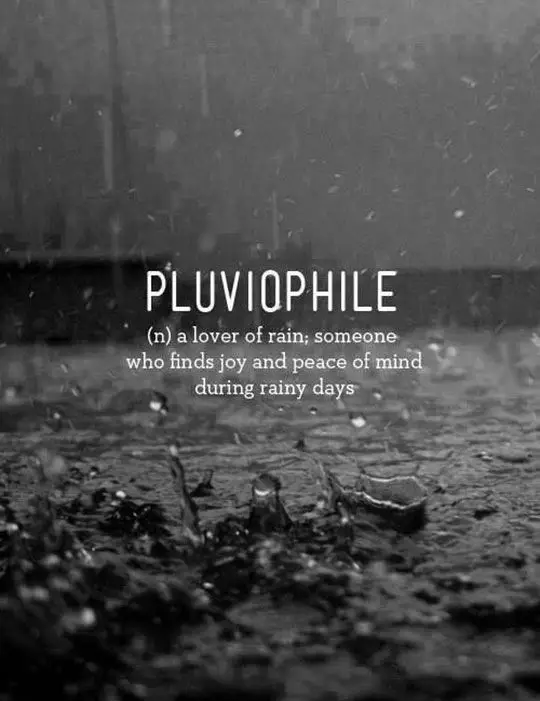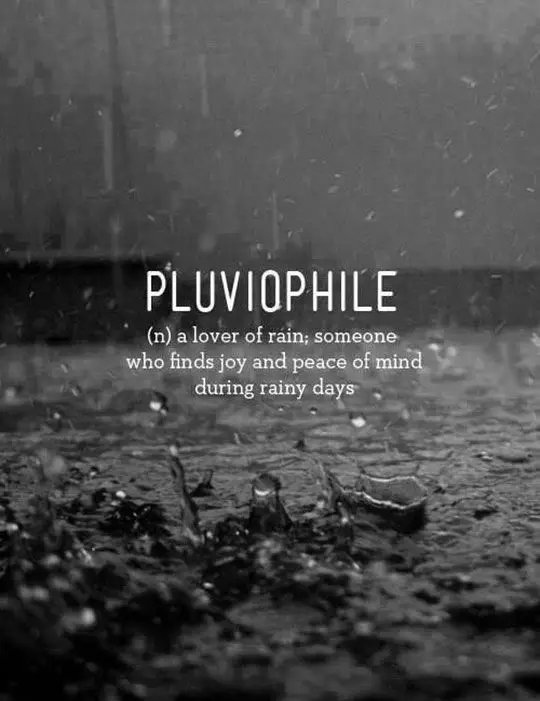The word for the smell of rain is “petrichor.” Petrichor is the smell that accompanies the first rain after a dry spell.
Petrichor derives from the Greek words “petra,” meaning stone, and “ichor,” meaning the fluid that flows like blood in the veins of the gods. It was coined by two Australian scientists to describe the earthy, pleasant aroma that arises when raindrops hit dry soil or rocks.
The smell of rain can evoke a sense of freshness and nostalgia, reminding us of nature’s rejuvenation and the cycle of life. This unique scent has caught the attention of poets, writers, and even scientists, who have been intrigued by its ethereal essence for centuries.
The Science Behind The Aroma Of Rain
The aroma of rain, commonly known as petrichor, is a fascinating phenomenon backed by science. Raindrops release aerosols that produce the distinctive scent. Bacteria and organic materials in the soil play a crucial role in creating this fragrance. When raindrops hit the ground, they disturb the soil particles, releasing volatile organic compounds (VOCs) into the air.
These VOCs mix with other chemical compounds present in the atmosphere and create the unique smell we associate with rainfall. The exact combination of chemicals and the intensity of the scent can vary depending on factors like geographical location, temperature, and soil composition.
Understanding the chemical compounds behind petrichor gives us a deeper appreciation for the enchanting aroma that accompanies rain showers.
The Origins Of The Word Petrichor
The term “petrichor” originated from the combination of two Greek words, “petra” meaning stone and “ichor” meaning the fluid that flows in the veins of the gods. The etymology of this word gained recognition with the publication of a research paper in 1964.
The study explored the unique aroma that arises when rain falls on dry soil. It named this scent “petrichor,” encapsulating the essence of the earth being nourished by rainfall. The term has since become widely known and embraced, signifying the pleasant fragrance associated with rain.
The origins of the word “petrichor” provide insight into our appreciation for the natural world and the connections we draw between our senses and the environment.
Cultural Associations With The Smell Of Rain
Rain has always held a special place in literature and art, serving as a powerful symbol of various emotions. The smell of rain, commonly known as petrichor, has significant cultural associations in different parts of the world. In some cultures, it represents renewal, rebirth, and cleansing.
For others, it evokes a sense of nostalgia and emotional connection to memories of rainy days. This unique scent has found its way into poetry, music, and even fashion, further highlighting its impact on human perceptions and experiences. Whether used to convey a feeling of serenity or to depict a melancholic mood, the smell of rain has a universal appeal that transcends geographical and cultural boundaries.
Its subtle fragrance lingers in the air, reminding us of the beauty and power of nature’s most cherished phenomenon.
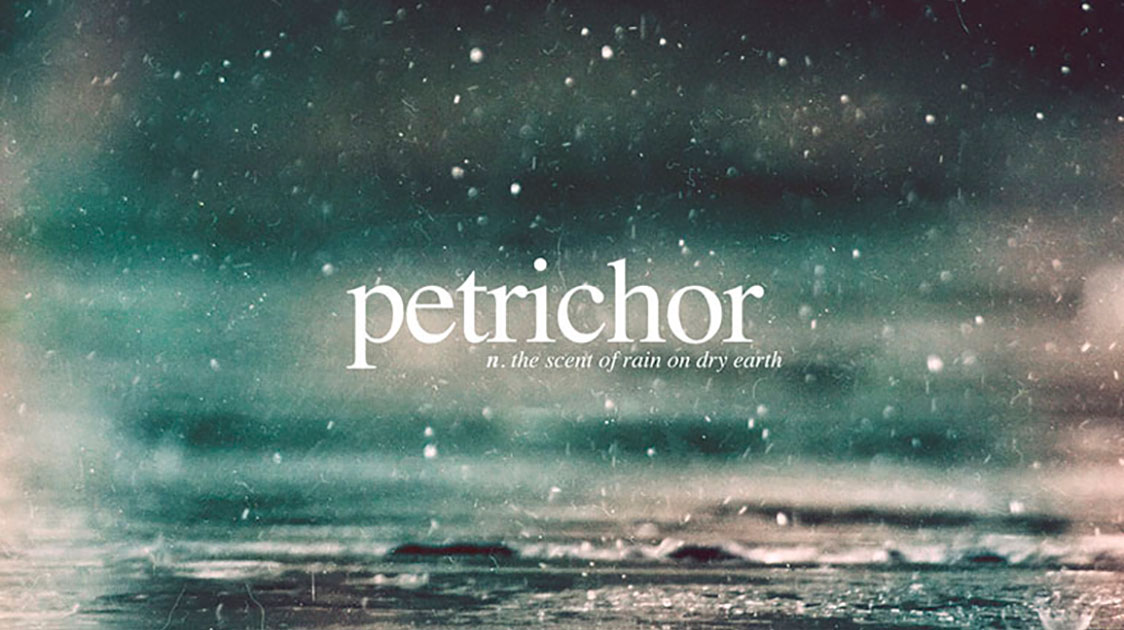
Credit: aotg.azurewebsites.net
Rainfall Distributions And Petrichor
Rainfall patterns have a direct impact on the level of petrichor, the scent of rain. It is fascinating to explore how the intensity of this fragrance varies across different climates. The geography of an area plays a significant role in shaping rain-scented experiences.
The distribution of rainfall greatly influences the concentration of the scent, creating unique olfactory experiences in different locations. Whether it’s a tropical rainforest or a desert region, the smell of rain carries distinct characteristics that are deeply connected to the environment.
As rain falls on different terrains, the interaction between water and the earth’s surface releases aromatic compounds, contributing to the petrichor phenomenon. By understanding the relationship between rainfall patterns and the scent of rain, we can appreciate the natural wonders that occur during precipitation in various parts of the world.
The Psychological Effects Of Petrichor
The smell of rain, also known as petrichor, has a profound impact on human emotions. It has been scientifically proven that this scent has calming and stress-relieving effects. Numerous studies have examined the connection between scent and mood, revealing the psychological benefits of petrichor.
Whether it’s the anticipation of rain or the actual experience of smelling it, the olfactory sensation triggers positive emotions and a sense of peace. The subtle fragrance of rain has the power to uplift spirits and create a soothing atmosphere.
This natural phenomenon not only delights our senses but also has a therapeutic effect on our mental well-being. The next time you step outside after a rainfall, take a deep breath and savor the psychological benefits of petrichor.
Perfumes And Products Inspired By Petrichor
Perfumes and products inspired by petrichor have gained popularity in the perfume industry. Manufacturers have introduced rain-scented candles, room sprays, and diffusers to capture the essence of the smell of rain. This emergence is driven by the unique marketing strategies and branding associated with the rain aroma.
Consumers are drawn towards these products for their ability to evoke nostalgia and create a calming atmosphere. Rain-scented fragrances are carefully crafted to mimic the fresh, earthy scent that accompanies rainfall. The use of petrichor-inspired products allows individuals to experience the wonderful smell of rain indoors, regardless of the weather outside.
As more people discover the allure of petrichor, the demand for rain-scented fragrances continues to grow in the perfume market.
Capturing And Preserving The Smell Of Rain
Capturing and preserving the smell of rain has become possible with recent technological advancements. One such development is the creation of synthetic petrichor, which aims to replicate the authentic aroma of rain. This breakthrough opens up possibilities for various applications, as businesses race to bottle the elusive essence of a fresh rainfall.
The distinctive scent of petrichor has enchanted people for centuries, and now, with advancements in technology, it can be replicated with astonishing accuracy. From perfumes and candles to room sprays and car fresheners, the possibilities for incorporating this unique fragrance are endless.
The challenge lies in capturing the true essence of rain, ensuring that the synthetic petrichor is a faithful representation. As scientists and innovators work tirelessly in their pursuit, the anticipation grows for a breakthrough that will allow us to relive the refreshing scent of rain anytime, anywhere.
Petrichor Versus Other Environmental Scents
Petrichor, a distinct aroma associated with rain showers, has its own unique characteristics. Unlike the smell of ozone, wet earth, or other nature-related scents, petrichor possesses a earthy, sweet, and musky quality. It is often described as a combination of soil, minerals, and plant oils, with a hint of freshness.
While ozone imparts a sharp, almost metallic scent, petrichor is more subtle and pleasing to the senses. The fragrance of wet earth, on the other hand, is primarily derived from the release of geosmin, an organic compound produced by bacteria in the soil.
Although similar in some ways, petrichor holds its own distinct allure, evoking a sense of calm and connection with nature.
Personal Experiences And Fond Memories Of Petrichor
Growing up, I vividly remember encountering the enchanting scent of rain, known as petrichor. These childhood experiences left a lasting impact on me. As I ventured on various travels and adventures, I found myself constantly drawn to the fragrance of rain.
It evoked a sense of nostalgia and brought back fond memories. But it wasn’t just my personal experiences that were connected to petrichor. I came across countless testimonies and anecdotes from readers who shared how the smell of rain had touched their lives as well.
Each story was unique, yet the common thread was the profound effect this earthy aroma had on their souls. The powerful combination of personal encounters, travels, and readers’ narratives truly showcased the significance of the smell of rain, making it an experience to be cherished by all.
Frequently Asked Questions For What Is The Word For The Smell Of Rain
What Is The Sweet Smell After Rain Called?
The sweet smell after rain is called petrichor, which is a pleasant earthy fragrance.
Why Can Humans Smell Petrichor?
Humans can smell petrichor because it results from a combination of rainwater and certain organic compounds.
What Is The Difference Between Geosmin And Petrichor?
Geosmin is the earthy odor after rainfall, while petrichor is the smell of rain on dry soil.
Is Petrichor A Real Word?
Yes, petrichor is a real word that refers to the earthy scent after rainfall.
Conclusion
Finally, we have unraveled the mysterious word for the smell of rain, petrichor. It is a unique and intriguing term that encapsulates the earthy, intoxicating scent that accompanies rainfall. Whether you grew up admiring the rain or recently discovered the beauty in it, recognizing the word petrichor adds a new layer of appreciation to the experience.
The bond between rain and our senses is undeniable, as the smell not only refreshes us but also evokes a sense of nostalgia and tranquility. Petrichor is a reminder of the innate connection we have with nature and how even the simplest of phenomena can bring us joy.
So, the next time the skies open up and raindrops fall, take a moment to breathe in the petrichor, allowing it to transport you to a place of peace and harmony with the natural world. Embrace the beauty of rain, and let petrichor become an essential part of your life’s olfactory tapestry.

